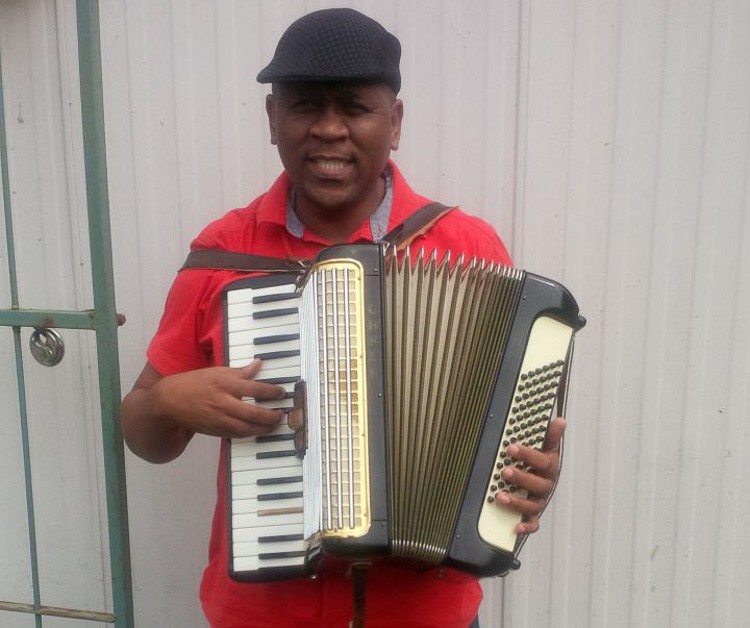I was born blind for a purpose, says East London accordion player
Siphe Mditshane uses his musical talent to teach others
East London resident Siphe Mditshane, 42, was born blind. But that did not stop him from following his dream to play the accordion and teach others.
Mditshane was born in Ngqeleni, one of eight children. His father was an accomplished piano accordion player, and Mditshane started playing by ear when he was 13 years old.
“Since I am blind, I would listen to my father every time he played, and that is how I learned to play. No one taught me; I just listened,” says Mditshane.
“The fact that I was born blind does not mean I cannot play music. I don’t use my eyes, but my hands.”
Mditshane completed an 11-track CD in 2014, which he sells for R50. His great joy is teaching others to play accordion and keyboard.
“Being blind does not mean I cannot help other people,” he says. “God has his reasons for making me this way, and now I am helping people who are perfectly able, so I guess I was born blind for a purpose”.
Two of his siblings, who were also born blind, also play the accordion and the keyboard.
He is often asked to play for free at weddings and funerals. He says, “I would appreciate it if people could take what I am doing seriously, because I am a family man and playing the accordion is my job.” Mditshane and his wife Nonkulu have seven children to support.
One of the young musicians Mditshane is mentoring, 28-year-old Luthando Ntoziyatsha, says, “I can see, but I didn’t know how to play the accordion.” He says Mditshane is proof that disabled people can often do things people without disabilities cannot do.
© 2017 GroundUp. 
This article is licensed under a Creative Commons Attribution-NoDerivatives 4.0 International License.
You may republish this article, so long as you credit the authors and GroundUp, and do not change the text. Please include a link back to the original article.



